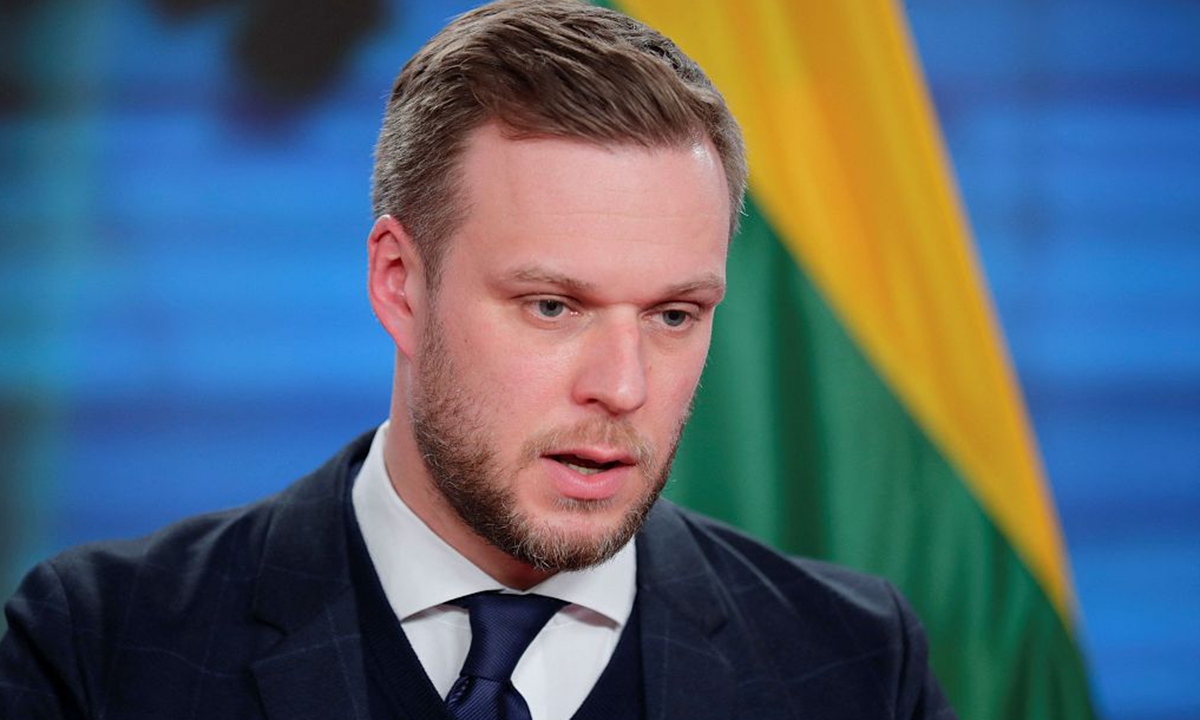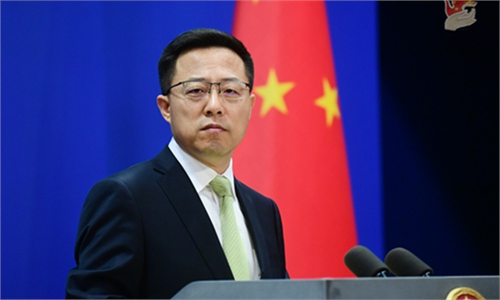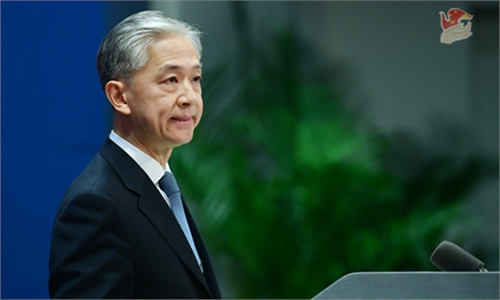Instigated by US behind the curtain, Lithuania tries to kidnap EU on Taiwan question

Lithuanian Foreign Minister Gabrielius Landsbergis file photo:VCG
After recklessly provoking China, Lithuania is turning to the EU for "help." Lithuanian media outlets have been hyping that Lithuania is deleted from China's electronic customs declarations system. When responding to the case, Gabrielius Landsbergis, foreign minister of Lithuania, said on Friday that the Baltic country will ask the European Commission to solve the issue.It appears that the EU could be dragged down by Lithuania's reckless policy. Regardless of the accuracy of the hype from the Lithuanian side, when something goes wrong in trade with China, it is first of all a matter of bilateral ties. Due to Lithuania's constant provocations on the Taiwan question, the diplomatic relationship between Beijing and Vilnius was downgraded to the level of chargé d'affaires. Still, there are channels for Lithuania and its enterprises to communicate and resolve problematic issues with China.
Lithuania is trying to pin its own troubles onto the EU. This is obviously a move to pull the EU into a dilemma, influence Brussels' relations with Beijing and jeopardize the 27 EU members' trade with China. The EU does not want to make it a bigger deal, yet for Lithuania and the US, the bigger the mess, the better.
Washington must be the hidden hand behind Vilnius, as Lithuania itself does not have the "wisdom" to cause such a big stir. From the perspective of interests and geographical location, there have been no controversies between China and Lithuania. That being said, Vilnius' sudden irritation against the world's second-largest economy is apparently guided by a certain force behind the curtain.
Apart from undisguised intention to utilize Lithuania to aggravate China, the US views Lithuania as a tool to drive a wedge in the EU in an attempt to nudge the bloc toward an anti-Chinese path. Worse, there are indeed some anti-China forces on the rise in Europe, such as those in the European Parliament. They are eager to take the US side or echo US appeals in terms of China policy.
The EU adheres to the one-China principle. Yet the US hopes the EU could join it in challenging China on the Taiwan question by muddling relevant concepts, making breakthroughs in supporting the island's role in international arena, and so on.
Lithuania made its choice in catering to the US and constantly provoking China. But now it is kidnapping the EU to do the same and tearing the region apart. Brussels is well aware of this. But it is in a predicament as there are many different forces and voices within the EU. And when it comes to the union's overall China policy, the focus on the factor - systematic rivalry - is on the rise.
If there is no US factor in Lithuania's diplomatic dispute with China, the EU may likely turn a cold shoulder to Lithuania. Yet given the complicated backdrop, the EU may show some support to Lithuania verbally later, but with no practical moves. The EU is a group of 27 countries, in which every member state's interests are different. Instigating conflicts between China and the EU will annoy many countries in the bloc, as that goes against the interests of most EU countries. Lithuania will thus hardly go too far on either its anti-China path or dragging down the EU. As some observers put it, Lithuania's move is like stopping Mercedes-Benz or Airbus from being sold to China.
Taiwan media outlets have been hyping that during the recent tour of Matas Maldeikis, leader of the Lithuanian parliament's Taiwan Friendship Group, to Taiwan island, he claimed that Baltic countries can survive without "authoritarian" markets. This is puffing itself up by slapping its own face.
Granted, China is not one of Lithuania's largest trading partners. But if Lithuania abandons the Chinese market, will the US make up for all its losses? The US does not even dare make such a pledge to Lithuania except signing a $600 million export credit agreement with it. This is a drop in the sea. Once it is spent, what will happen to Lithuania's tomorrow is unknown.
The article was compiled by Global Times reporter based on an interview with Sun Keqin, a research fellow at the China Institutes of Contemporary International Relations. opinion@globaltimes.com.cn



